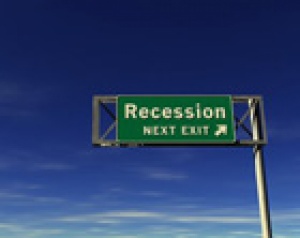Downturn Special Report – Back to Basics

There can be precious few in the travel industry that aren’t being rocked by the global recession, and arguably fewer still that saw it coming. Even as late as last spring, many experts were adamant that the saying “When America sneezes the rest of the world catches a cold” was old hat in a brave new economic world where China, India and the Middle East were the only players that now mattered.
Less than a year on, however, and across all global markets, travel leaders are battening down their hatches as the perfect economic storm engulfs even the most established of brands.
After years of globalisation, there is now a growing sentiment that big is not necessarily beautiful. Just look at some of the banks and car manufacturers – they are big, and they are in big trouble.
In the skies, Boeing epitomises the woes of an inelastic industry in retreat. In just one year, its quarterly profits have turned from a US$1.03 billion profit to US$56 million in the red. The figures come as the aviation giants says it is also axing 10,000 jobs, equivalent to 6 percent of its workforce, as the demand for new planes continues to dwindle. And you would be hard pressed to bet against more bad news on the Boeing horizon.
Back on terra firma, the bubble in Dubai – a destination once regarded as immune to any downturn – popped late last year as the global financial crisis intensified. On The Palm Jumeirah, the island known as the “eighth wonder of the world”, prices have fallen by over 50 percent since their peak last autumn. Meanwhile local hoteliers are slashing rates to stoke the fast-flagging demand as holidaymakers and business travellers, from both west and east, put the brakes on travel expenditure.
ADVERTISEMENT
That is how the barometer of our general outlook has turned.
The present climate has been a wake-up call for those in the speculative investment game. It also proves, as in any downturn, that there is no substitute for an old-fashioned business, based on the fundamentals of supply and demand – those basic elements that those such as Warren Buffett enthuse yet are often ridiculed for.
So how about those rare organisations which appear to be pushing the right buttons in these turbulent times. TUI Travel, for example, is a Buffett-style, yield business that turns in solid figures come boom or bust. Its master weapon, learned and honed from downturns past, is its ability to cut capacity – balancing capacity with predicted demand, so as few holidays as possible go unsold. For the biggest risk in tour operating – especialy in a recession – is being left with hundreds of unsold holidays, forcing you to slash prices in the so-called “lates market”.
As soon as the storm clouds of the downturn started to rumble, TUI Travel cut 12 per cent of its capacity and is forecasting a further cut of 15 per cent this year. Its counterpart Thomas Cook has been making similar reductions, and likewise has produced solid results.
What many younger businesses can learn is to the need to grow through value, not speculation, something that can take decades to blossom, and that certainly does not happen overnight. With it will come a sense of optimism, because business is for the long-term.
It is only with a sense of optimism and sense of time, accompanied by an ability to dig deep in adversity, that we will be able to pick ourselves up and start doing business again.
In particular, governments must instigate infrastructure projects to increase employment, as exemplified by Brazil – one of the few countries that is still thriving in the downturn. Governments too must force banks, particularly those that they have rescued, to lend to small businesses, the very hub of any thriving economy.
According to the ITB Trends report 2009, tourism and travel GDP is expected to contract by 1% in 2009 and to grow by just 2% in 2010, or at half its trend growth rate. The good news is that this indicates a stronger recovery in tourism demand in 2010-12.
And the catalyst in the recovery could well turn out to be the same as the catalyst in the crash – the good old U.S. of A.
Having knocked itself and then the rest of the world into recession, the U.S. economy now appears as well placed as any to get back on its feet soonest. The latest inbound figures are healthy (up 6 percent in the first nine months of 2008 compared to 2007, according to the U.S. Department of Commerce), proving that the country represents good value. The dollar too is recovering.
And crucially, the new Obama office, like its predecessor, seems intent on providing massive support to the economy and to consumers. The accompanying wave of Dunkirk spirit could yet prove that although the forecast may now look bleak, come next year we could be well en-route to a worldwide recovery.

